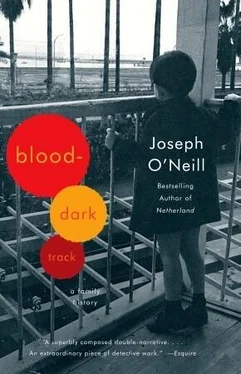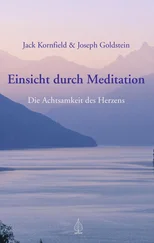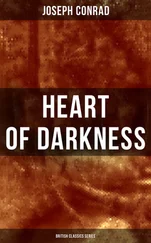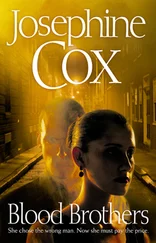‘Papa was a cultivated man,’ my mother said quietly. ‘There was no one like him in the whole of Mersin.’
On the subject of cultivation, it was Joseph’s dream to own an orange garden. He bought books about the farming of citrus fruit and kept an eye open for land that might suit his purposes. He loved having oranges about the house, buying them in crates that he kept on top of a cupboard, out of the children’s reach. It would seem that his love affair with citrus fruit endured even after, on one view, it had played a decisive part in the most disastrous episode of his life.
It is lunchtime, and hours of planning, shopping and cooking by my grandmother and her servants are about to pay off — or not. The lamb cutlets have been consumed approvingly, the correct acridity of the babaganoushe has been noted, the böreks have not been criticized. Now everything turns on the watermelon. That so much should hinge on this fruit is strange, since its quality will merely reflect on the choice made by the majordomo, Ahmet, at the market that morning; but that is the way it has always been: in the final analysis, the pastèque is the king of the table.
A rich red tranche is forked up from the serving dish and placed on Oncle Pierre’s dessert plate. Pierre frowns, noting the consistency of the fruit’s redness. A hush descends at the table as he brushes the dark pips from the flesh and inserts a morsel into his mouth. All the while, my grandmother watches anxiously. Oncle Pierre chews, then swallows. ‘ Pas mal ,’ he concedes. ‘ Sept sur dix .’
Mamie Dakad is happy and relieved, and general conversation resumes.
‘ Everything is marvellous, Georgette.’ The speaker, in French, is Madame Olga Catton, an old friend of the family. Olga has a strong, gravelly accent in every language she speaks, her r’s rolled with a regal finality; and indeed everything about her suggests a tsarina in exile. She takes out a cigarette and fixes it in her cigarette holder. My sister Ann, who knows the routine, offers a flame from a silver lighter. ‘Here you are, Auntie Olga,’ Ann says. ‘Thank you, darling,’ Olga says in English. Olga sucks on her cigarette holder, and her eyebrows — plucked into nothingness and replaced by a stroke of pencil — curve upwards appreciatively. ‘You’re so pretty, my dear, you really are.’ She turns to Mamie Dakad and says in Arabic, ‘She takes after her mother — the eyes, the hair, the chin.’
Mamie Dakad says, slightly begrudgingly, ‘She has her mother’s colouring, perhaps. But the bone structure is the father’s.’
Pastries — pains d’Espagne and sablés topped with icing sugar and home-made apricot jam — are brought out to accompany the fruit.
Oncle Pierre stands up suddenly and authoritatively jangles a fistful of keys. ‘Right, I’m off.’ He looks at his watch. ‘How are you going to the beach?’
‘By bus,’ my mother replies.
Pierre makes the click of the tongue that, in Turkey, means no. ‘The müdür will drive you, or give you his car,’ he decrees.
The müdür is the manager of the hotel. Although a helpful man, he is a former colonel in the Turkish army and is not, by training or inclination, a chauffeur. ‘Pierre, there really is no need,’ my mother protests. ‘Besides, the children like going by bus.’
This is not true. We much prefer travelling by car — preferably Pierre’s car, an air-conditioned, petrol-guzzling Chevrolet with an aquamarine front bench seat and a dark blue sunband at the top of the windscreen.
‘Never!’ my grandmother exclaims. ‘Take the müdür ’s car!’
Dursun, the cook, comes in with cups of Turkish coffee. (Her name means ‘Stop’, her parents having had their fill of children when she was born. Trained by my grandmother, she is a well-paid and highly sought-after freelancer.) Meanwhile, my mother and Amy help Fatma, the housemaid, to remove the dishes. In spite of years of mopping the eternal floors of the hotel by hand, Fatma is strong, wiry and flexible. She is probably in her fifties. Her eyebrows are thick and united, and her hair, beginning to grey, is always bunched out of sight inside a headscarf; my mother says that Fatma has never cut it and that it falls to her waist. Fatma’s recent promotion to the key position of housemaid has been a success, although my grandmother says that la Présente (as Fatma is called when she is within earshot) depresses her with relentless tales of woe. Fatma, who is a Kurdish Turk, comes from a village in the east and still suffers from homesickness. At the age of thirteen, she married a fellow twenty years older than her. He died before any children were born. Fatma remarried another old-timer, a man (as she never ceases to repeat) older than her own mother. They have had six children. One daughter committed suicide; one son is mentally disabled; another son, in his late teens, is a source of constant anxiety and trouble (gambling or drug troubles, Fatma reckons) which, it is hoped, military service will iron out. Fatma’s husband refuses to work. Thankfully, she has a son who works hard as a mechanic and who has bought her a washing machine, although Fatma worries that the one day the good son will snap and kill the bad son. Fatma worries a lot. She has never really got over the death of a little granddaughter who ran in front of a car.
I don’t learn any of this until years later. All I know for now is that if Fatma wishes to make a phone call she asks me to dial the number since, like Dursun, she has never learned to recognize numerals or letters.
Auntie Olga, meanwhile, has brought out a fan decorated with peacocks. Her makeup, which climaxes in a fiery streak of lipstick, is under threat from the high temperature. ‘What heat, what heat,’ she says. ‘Darling,’ she says to Ann, ‘pour me a glass of water.’
Oncle Pierre, who has lit up a king-size American cigarette, frowns and looks at his watch again. ‘That’s it, I’m off. I’ll see you all this evening.’ He strides away rapidly, to the bank he is building.
Moments later, footsteps from the hallway announce somebody’s arrival: it is the müdür , a sheen of sweat on his brow and a smile on his face, graciously insisting that we take his car.
‘That’s settled, then,’ Mamie Dakad says. While we get ready for the beach, she and Isabelle and Olga drink more Turkish coffee and respectively smoke Pall Mall, Kent and Dunhill imported cigarettes while Fatma polishes the cutlery and the plaques awarded by the municipality to Georgette Dakad for being the proprietor of the hotel in Mersin to pay the most corporation tax in a given fiscal year.
I remembered these scenes on a morning in August 1995. I was alone in my late grandmother’s apartment on the top floor of the hotel, breakfasting on white cheese, olives, bread, and a glass of milkless Black Sea tea. My solitude was heightened by the shutting off of the top floor to paying guests. The decision was Mehmet Ali’s, who for two or three years had been running the hotel for his own profit. Oncle Pierre, who was spending most of his time in Paris, had lost interest in the business and, in a not entirely selfless move, he let the hotel to Mehmet Ali at a near-nominal rent. Mehmet Ali, it was felt, had earned his break: not only was he efficient, trustworthy and enthusiastic but, most importantly, he had looked after my elderly grandmother in her last years with unflagging kindness — running errands, ensuring she took her medicines, assisting her with her domestic arrangements.
I got up from the breakfast table and went out to the balcony. The view of the sea was obstructed by the Panorama Apartments, eight storeys of luxury accommodation that rose from the middle of the hotel’s terrace. The White Sea (as Turks call the Mediterranean) used to run up to a strand at the base of the hotel, where banana trees grew, but in about 1960 a tract of a land was reclaimed from the sea by Dutch engineers and transformed into a park. A crab-infested ridge of rocks served as a shoreline, and, quite far out at sea, large breakwaters created a haven. Over to the left were the docks and piers. They were dominated by a huge grain elevator that, with its classical white columns and majestic proportions, had always struck me as beautiful as any building in the city.
Читать дальше
Конец ознакомительного отрывка
Купить книгу












